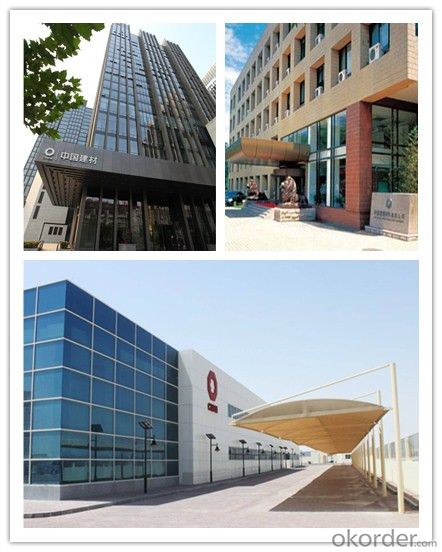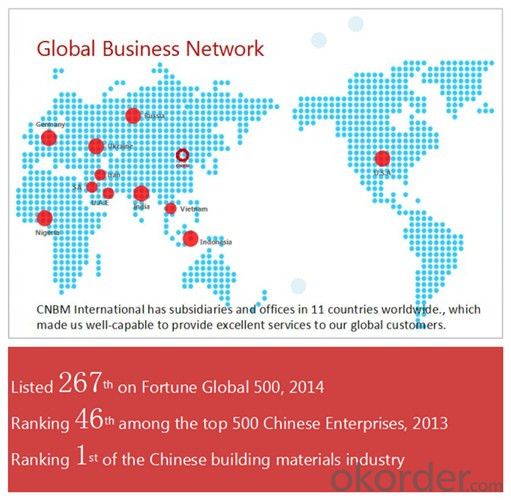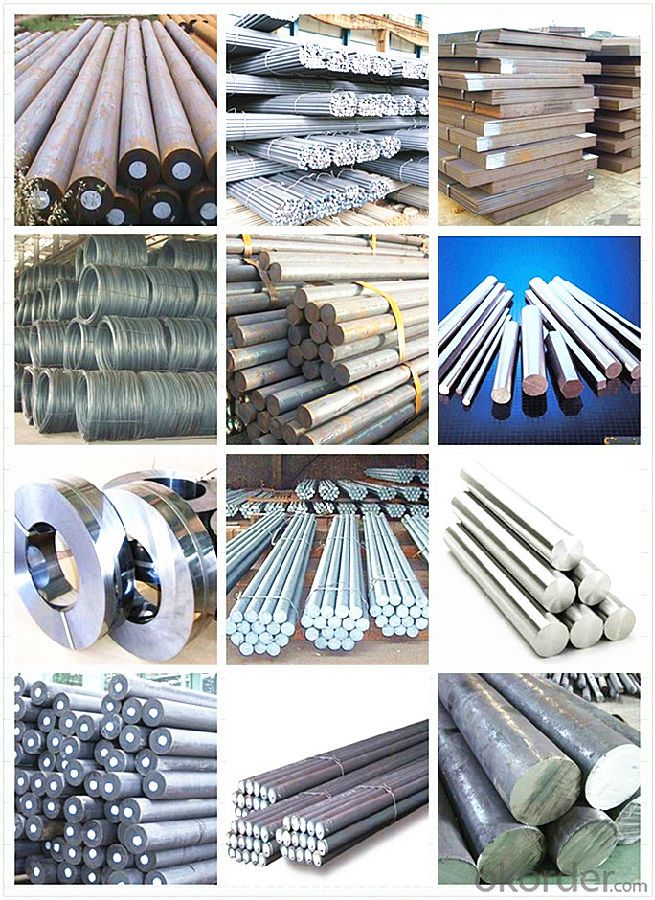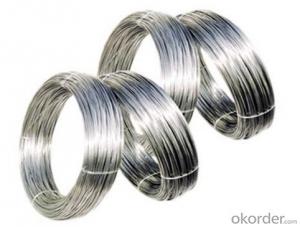Hot-rolled SUS 316 stainless steel wire rod in Coils
- Loading Port:
- Tianjin
- Payment Terms:
- TT OR LC
- Min Order Qty:
- 1 m.t.
- Supply Capability:
- 10000 m.t./month
OKorder Service Pledge
Quality Product, Order Online Tracking, Timely Delivery
OKorder Financial Service
Credit Rating, Credit Services, Credit Purchasing
You Might Also Like
Item specifice
Type:
Carbon Steel,Spring Steel,Bearing Steel,Gear Steel,Deformed Steel,Stainless Steel,Alloy Steel
Shape:
Steel Coil,Steel Sheet,Steel Wire Rod,Steel Flat Bar,Steel Square Bar,Steel Angle,Steel Round Bar,Steel Billets
Technique:
Hot Rolled,Cold Rolled,Cold Drawn,ERW,Forged,Saw,Extruded,EFW,Spring
Surface Treatment:
Galvanized,Coated,Copper Coated,Color Coated,Oiled,Dry,Chromed Passivation,Polished,Bright,Black,PVDF Coated
Certification:
ISO,SGS,BV,IBR,RoHS,CE,API,BSI,UL
Thickness:
5.5-18mm
Width:
5.5-18mm
Length:
In coils
Outer Diameter:
5.5-18mm
Net Weight:
2m.t.
Packaging:
Seaworthy packaging
Hot-rolled SUS 316 stainless steel wire rod in Coils
Detailed Information of the Hot-rolled SUS 316 stainless steel wire rod in Coils
| Name | Hot Rolled High Carbon Wire Rod |
| Shape | Round Bar/Square Bar/Flat Bar/Plate/Wire |
| Standard | GB/ASTM/SAE/AISI/DIN/JIS/EN/BS |
| Surface Treatment: | Black/Peeling/Polished/Machined |
| Delivery Condition: | Hot Rolled or Forged/Peeled or Black Surface |
| Test | SGS/UT 100% Elements Testing |
| Certificate: | ISO/Mill Certificate |
| Service: | 24 hours online service / |
| more than 20 years trading and manufacture | |
| Quality Assurance: | the third party inspection, such as SGS, BV, TUV…etc. is acceptable |
| Packaging Details: | Seaworthy Packaging or as per customer's packing instruction |
Chemical Composition of the Hot-rolled SUS 316 stainless steel wire rod in Coils
| Material | C %(≤) | Mn % (≤) | P % (≤) | S % (≤) | Si % (≤) | Cr% (≤) |
| 430 | 0.08 | 1 | 0.04 | 0.03 | 1 | 16.00-18.00 |
Company Introduction of the Hot-rolled SUS 316 stainless steel wire rod in Coils
CNBM International Corporation is the most import and export platform of CNBM group(China National Building Material Group Corporation) ,which is a state-owned enterprise, ranked in 270th of Fortune Global 500 in 2015.
With its advantages, CNBM International are mainly concentrate on Cement, Glass, Iron and Steel, Ceramics industries and devotes herself for supplying high quality series of refractories as well as technical consultancies and logistics solution.


| After-sale service | CNBM provides the services and support you need for every step of our cooperation. We’re the business partners you can trust; you can relax and get on with doing business. |
| For any problem, please kindly contact us at any your convenient time, we’ll reply you in our first priority within 24 hours | |
| Advantages | Industry experience over 20 years. |
| Shipment of goods -More than 70 countries worldwide. | |
| The most convenient transport and prompt delivery. | |
| Competitive price with best service. | |
| High technical production line with top quality products. | |
| High reputation based on best quality products. |
Packaging & Delivery of the Hot-rolled SUS 316 stainless steel wire rod in Coils
| Packaging Detail | Sea worthy packing /as per customer's packing instruction |
| Delivery Detail | 15 ~ 40 days after receiving the deposit |
Products Show

FAQ:
| Are you a trader or manufacturer? | Manufacturer |
| What’s the MOQ? | 3 metric ton |
| What’s your delivery time? | 15-35 days after downpayment received |
| Do you Accept OEM service? | Yes |
| what’s your delivery terms? | FOB/CFR/CIF |
| What's the Payment Terms? | 30% as deposit,70% before shipment by T/T |
| Western Union acceptable for small amount. | |
| L/C acceptable for large amount. | |
| Scrow ,Paybal,Alipay are also ok | |
| Why choose us? | Chose happens because of quality, then price, We can give you both. |
| Additionally, we can also offer professional products inquiry, products knowledge train (for agents), smooth goods delivery, excellent customer solution proposals. | |
| What's your available port of Shipment? | Main Port, China |
| What’s your featured services? | Our service formula: good quality+ good price+ good service=customer's trust |
| Where are your Market? | Covering more than 160 countries in the world |
- Q:How is corrosion-resistant steel used in marine environments?
- Corrosion-resistant steel is used extensively in marine environments due to its ability to withstand the harsh conditions of saltwater exposure. It is commonly used in the construction of ships, oil rigs, offshore platforms, and other marine structures. The steel's high resistance to corrosion helps prevent rusting and deterioration, ensuring the longevity and durability of these structures in the corrosive marine environment.
- Q:What are the specific requirements for special steel used in the aerospace fastener industry?
- To ensure the safety, reliability, and performance of aircraft components, the aerospace fastener industry demands special steel that meets specific criteria. These requirements include the following: 1. Remarkable strength: The special steel used in aerospace fasteners must possess exceptional strength to withstand the extreme forces and stresses experienced during flight. This is crucial for maintaining the structural integrity of aircraft components. 2. Resistance to corrosion: Aerospace fasteners are constantly exposed to various environmental conditions, including moisture, high temperatures, and chemicals. Therefore, the steel used must have excellent corrosion resistance properties to prevent degradation and maintain the longevity of the fasteners. 3. Exceptional fatigue resistance: Due to repeated loading and unloading cycles throughout the lifespan of aircraft components, the special steel used in aerospace fasteners must exhibit exceptional fatigue resistance. This ensures that the fasteners can endure cyclic loading without fracturing or experiencing any structural failures. 4. Ability to withstand temperature variations: Aerospace fasteners are subject to extreme temperature changes, ranging from sub-zero temperatures at high altitudes to elevated temperatures near engines. The steel used should possess excellent temperature resistance to maintain its mechanical properties under these conditions. 5. Lightweight nature: In the aerospace industry, weight reduction plays a crucial role in improving fuel efficiency and increasing the payload capacity of aircraft. Therefore, special steel used in aerospace fasteners should be lightweight without compromising on strength and other necessary properties. 6. Non-magnetic features: Certain aerospace applications require non-magnetic fasteners to prevent interference with sensitive electronic equipment, such as avionics and navigation systems. Consequently, the special steel used in such cases must exhibit non-magnetic characteristics. 7. Adherence to industry standards: Special steel used in the aerospace fastener industry must meet the stringent standards and specifications established by regulatory bodies like the International Organization for Standardization (ISO) and the National Aerospace and Defense Contractors Accreditation Program (NADCAP). Complying with these standards ensures the quality and reliability of the fasteners. Overall, meeting the specific requirements for special steel used in the aerospace fastener industry is paramount to ensuring the safety and performance of aircraft components. These requirements encompass high strength, corrosion resistance, fatigue resistance, temperature resistance, lightweight properties, non-magnetic characteristics, and compliance with industry standards.
- Q:How does special steel contribute to the chemical processing aftermarket industry?
- The chemical processing aftermarket industry heavily relies on special steel, which offers a wide range of benefits to enhance the efficiency and performance of equipment. Firstly, special steel is well-known for its exceptional strength and durability, making it ideal for applications involving high pressure, extreme temperatures, and corrosive environments. This durability ensures that the equipment can withstand challenging conditions and operate reliably for extended periods, reducing the need for frequent maintenance and replacement. Furthermore, special steel possesses excellent resistance to corrosion, oxidation, and chemical reactions, which are common challenges in the chemical processing industry. This resistance allows the equipment to handle various chemicals without deteriorating or contaminating the process, ensuring the quality and safety of the end products. Additionally, special steel can withstand the formation of scale, deposits, and other contaminants that can hinder equipment efficiency, reducing the frequency of cleaning and maintenance. Moreover, special steel offers superior mechanical properties such as toughness, hardness, and impact resistance, which are essential for handling heavy loads and abrasive materials. This ensures that the equipment can withstand demanding operational conditions and maintain its performance over time, resulting in enhanced productivity and reduced downtime. Another significant contribution of special steel to the chemical processing aftermarket industry is its versatility. It can be customized and tailored to meet specific requirements, allowing for the manufacturing of complex parts and components essential for various chemical processes. Special steel can be fabricated into different shapes and sizes, enabling the creation of intricate designs and structures that optimize equipment efficiency and effectiveness. In conclusion, special steel is vital to the chemical processing aftermarket industry due to its exceptional strength, durability, resistance to corrosion and chemical reactions, as well as its versatility. By providing reliable and high-performance equipment, special steel significantly contributes to the overall efficiency, safety, and productivity of chemical processing operations.
- Q:What are some innovative applications of special steel?
- Special steel, also known as alloy steel, offers a wide range of innovative applications due to its unique properties and characteristics. Some of these applications include: 1. Aerospace Industry: Special steel is extensively used in the aerospace industry for manufacturing critical components like turbine blades, landing gears, and structural parts. Its high strength, excellent corrosion resistance, and ability to withstand extreme temperatures make it an ideal choice for these applications. 2. Automotive Industry: Special steel finds various applications in the automotive industry, including the production of engine components, suspension systems, and safety-related parts. Its exceptional strength-to-weight ratio and resistance to wear and fatigue ensure improved performance, durability, and safety in vehicles. 3. Medical Devices: Special steel is utilized in the manufacturing of surgical instruments, implants, and medical equipment. Its biocompatibility, high strength, and resistance to corrosion make it suitable for use in implants such as artificial joints, stents, and dental implants. 4. Energy Sector: Special steel plays a crucial role in the energy sector, particularly in power plants, nuclear reactors, and oil and gas facilities. Special steel pipes and tubes are used for conveying fluids and gases, while its high-temperature resistance is essential for components like steam turbines and boilers. 5. Tooling and Machining: Special steel is extensively used in tooling and machining processes due to its exceptional hardness, toughness, and wear resistance. It is employed in the production of cutting tools, dies, molds, and machine components, ensuring high precision, extended tool life, and increased productivity. 6. Defense and Security: Special steel is used in the defense and security sectors for the production of armored vehicles, ballistic protection, and military-grade equipment. Its ability to withstand high impact and provide superior protection against projectiles and explosions make it an essential material in these applications. 7. Construction and Infrastructure: Special steel is widely used in the construction industry for applications such as bridges, high-rise buildings, and infrastructure projects. Its high tensile strength, resistance to corrosion, and durability ensure structural integrity and safety. 8. Renewable Energy: Special steel is employed in the renewable energy sector, particularly in wind turbines and solar energy systems. Its high strength and resistance to fatigue ensure the reliability and longevity of these energy generation systems. In conclusion, special steel offers numerous innovative applications across various industries due to its unique properties. From aerospace and automotive to medical devices and renewable energy, this versatile material continues to drive advancements and meet the evolving needs of modern technology and society.
- Q:Can special steel be used for precision instruments?
- Yes, special steel can be used for precision instruments. Special steel, such as tool steel or stainless steel, offers excellent hardness, strength, and corrosion resistance, making it ideal for precision instruments that require high accuracy and durability.
- Q:Can special steel be used in the energy sector?
- Indeed, the energy sector can utilize special steel. This term encompasses a range of high-performance alloys that are specifically crafted for applications necessitating exceptional strength, durability, and resistance to corrosion and extreme temperatures. These qualities render special steel an optimal choice for numerous components employed in the energy sector. Within the oil and gas industry, special steel is frequently employed in the construction of pipelines, drilling equipment, and offshore platforms. Its robustness and resistance to corrosion guarantee the integrity and reliability of these vital structures, even in challenging environments. Special steel is also extensively employed in power generation plants. For instance, in thermal power plants that generate steam for electricity production, special steel is employed in the production of boiler tubes and pressure vessels. The extraordinary heat resistance and structural integrity of special steel ensure the secure and efficient operation of these components, even under high temperatures and pressure. Moreover, special steel finds applications in the renewable energy sectors, such as wind and solar power. In the case of wind turbines, special steel is utilized in the manufacturing of rotor shafts, gears, and bearings, all of which undergo substantial mechanical loads. Similarly, in concentrated solar power plants, special steel is employed for the construction of heat exchangers, receivers, and storage systems. Overall, the presence of special steel in the energy sector plays a pivotal role in enhancing the performance, safety, and longevity of various components and structures. Its exceptional properties make it an indispensable material, supporting the infrastructure and operations of the energy industry.
- Q:Are there any disadvantages of using special steel?
- Yes, there are some disadvantages of using special steel. Firstly, special steel is generally more expensive than regular steel. The production process of special steel involves additional alloying elements and heat treatments, which contribute to the higher cost. This can make it less economical for certain applications where cost is a major consideration. Secondly, special steel may have limited availability compared to regular steel. Special steel grades are often produced in smaller quantities and may only be available from specific suppliers. This can lead to longer lead times and difficulties in sourcing the required quantity of special steel, especially for large-scale projects. Additionally, the increased complexity of special steel can make it more difficult to work with. Special steel may require specialized knowledge, skill, and equipment to handle and process. This can lead to higher manufacturing costs and potential production delays if the necessary expertise or resources are not readily available. Furthermore, the high strength and hardness of some special steel grades can make them more prone to brittleness. This means that special steel may be more susceptible to cracking or breaking under certain conditions, especially when subjected to extreme temperatures or sudden impact loads. This can be a drawback in applications that require high toughness or resistance to fracture. Lastly, special steel may have limited applications due to its specific properties. While it offers enhanced characteristics such as corrosion resistance, high temperature resistance, or improved mechanical properties, these advantages may not be relevant or necessary for every application. In such cases, using special steel may be an unnecessary expense without any tangible benefits. In conclusion, special steel has its drawbacks, including higher costs, limited availability, increased complexity, potential brittleness, and limited applicability. Therefore, careful consideration should be given to the specific requirements of the project before opting for special steel.
- Q:What are the different methods of preventing galvanic corrosion in special steel?
- There are several methods available to prevent galvanic corrosion in special steel: 1. Coating: Applying a protective coating to the surface of the steel can prevent direct contact between the steel and the corrosive environment. This can be done using various types of coatings such as paints, epoxy, or polyurethane. The coating acts as a barrier and prevents the formation of galvanic cells. 2. Cathodic protection: This method involves making the steel the cathode in a galvanic cell, which prevents corrosion. This can be achieved through two techniques: sacrificial anode cathodic protection and impressed current cathodic protection. Sacrificial anode cathodic protection involves connecting a more reactive metal, such as zinc or magnesium, to the steel. The sacrificial anode corrodes instead of the steel, protecting it. Impressed current cathodic protection involves applying a low-level direct current to the steel, which prevents the formation of galvanic cells. 3. Isolation: By physically separating the special steel from other metals that are more reactive, galvanic corrosion can be prevented. This can be done by using insulating materials, such as plastic or rubber, between the steel and other metals. 4. Alloying: The addition of certain alloying elements to the special steel can improve its resistance to galvanic corrosion. For example, adding chromium to steel forms a passive oxide layer on the surface, which acts as a barrier against corrosion. 5. Design considerations: Proper design and engineering can also help prevent galvanic corrosion. For example, avoiding the use of dissimilar metals in close proximity can minimize the potential for galvanic corrosion. Additionally, designing structures to allow for proper drainage and ventilation can prevent the accumulation of moisture, which can accelerate galvanic corrosion. It is important to note that the selection of the most appropriate method for preventing galvanic corrosion in special steel depends on various factors such as the specific environment, cost considerations, and the desired lifespan of the steel.
- Q:How does special steel perform in high-temperature corrosion?
- Special steel performs well in high-temperature corrosion due to its unique composition and properties. It is designed to resist oxidation, scaling, and other corrosive reactions at elevated temperatures. The alloying elements present in special steel, such as chromium, nickel, and molybdenum, form a protective oxide layer on the surface, preventing further corrosion. Additionally, the high strength and heat resistance of special steel make it an ideal choice for applications in high-temperature environments, ensuring long-term performance and durability.
- Q:What are the different shot blasting techniques used for special steel?
- Some of the different shot blasting techniques used for special steel include wheel blasting, air blasting, and wet blasting. Wheel blasting involves using a high-speed rotating wheel to propel steel shot at the surface of the steel, removing any contaminants or rust. Air blasting uses compressed air to propel abrasive particles at high speed onto the surface of the steel, achieving a similar result. Wet blasting combines water with the abrasive particles to create a slurry, which is then sprayed onto the steel surface to remove any impurities effectively. These techniques are commonly employed to prepare special steel for further processing or to enhance its surface finish.
1. Manufacturer Overview |
|
|---|---|
| Location | |
| Year Established | |
| Annual Output Value | |
| Main Markets | |
| Company Certifications | |
2. Manufacturer Certificates |
|
|---|---|
| a) Certification Name | |
| Range | |
| Reference | |
| Validity Period | |
3. Manufacturer Capability |
|
|---|---|
| a)Trade Capacity | |
| Nearest Port | |
| Export Percentage | |
| No.of Employees in Trade Department | |
| Language Spoken: | |
| b)Factory Information | |
| Factory Size: | |
| No. of Production Lines | |
| Contract Manufacturing | |
| Product Price Range | |
Send your message to us
Hot-rolled SUS 316 stainless steel wire rod in Coils
- Loading Port:
- Tianjin
- Payment Terms:
- TT OR LC
- Min Order Qty:
- 1 m.t.
- Supply Capability:
- 10000 m.t./month
OKorder Service Pledge
Quality Product, Order Online Tracking, Timely Delivery
OKorder Financial Service
Credit Rating, Credit Services, Credit Purchasing
Similar products
New products
Hot products
Hot Searches
Related keywords

































